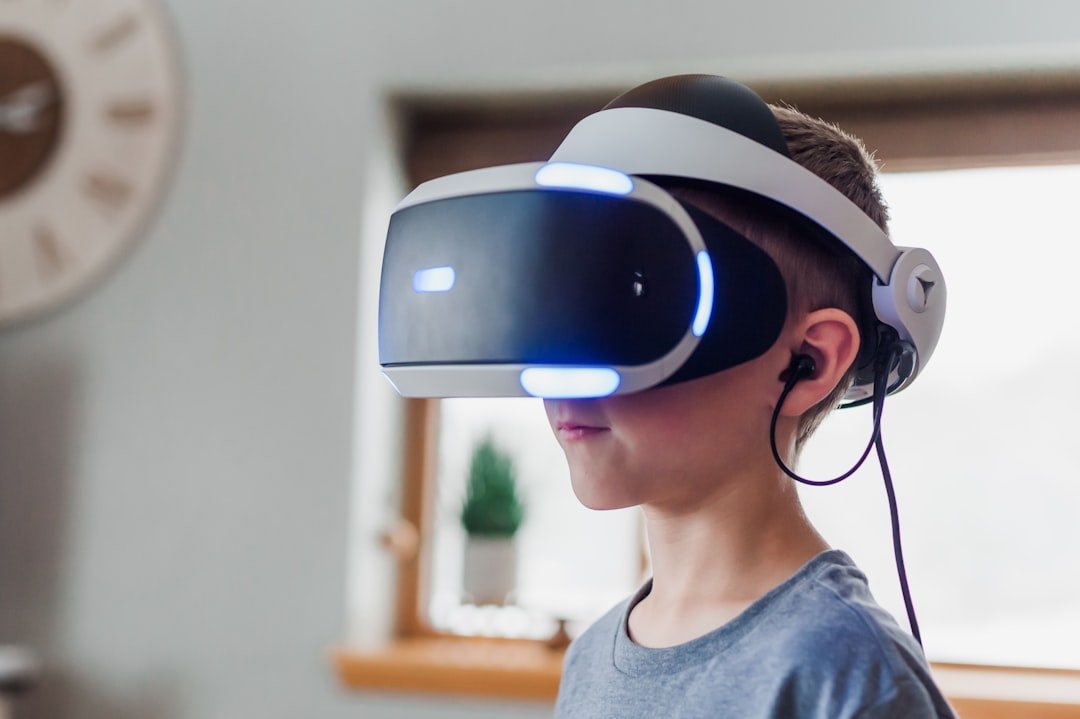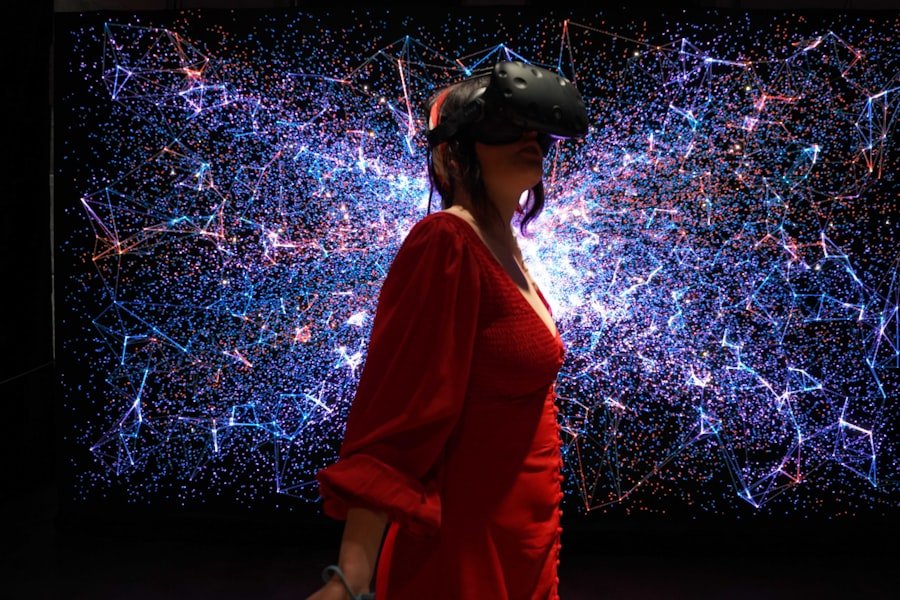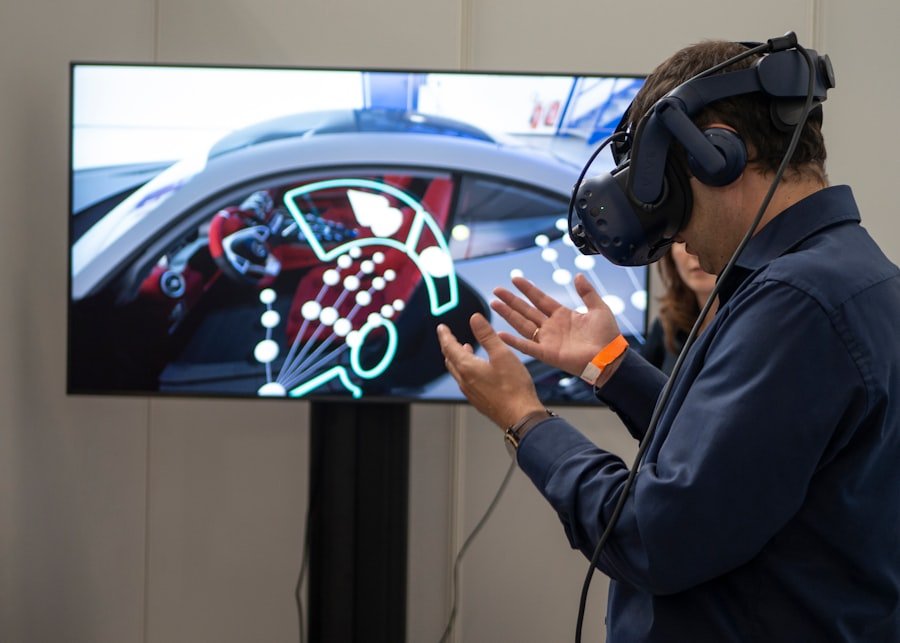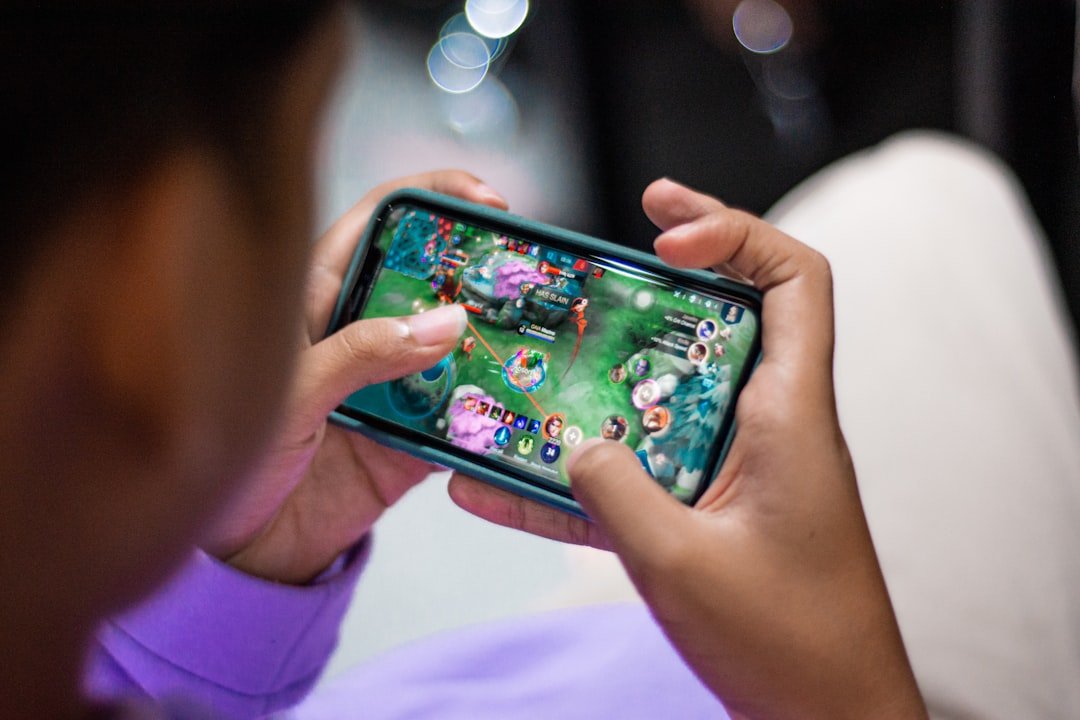Now Reading: Can Games as Therapy Go Mainstream?
-
01
Can Games as Therapy Go Mainstream?
Can Games as Therapy Go Mainstream?

In recent years, I have witnessed a remarkable shift in the perception of video games, particularly regarding their role in mental health treatment. Once viewed primarily as a source of entertainment or a pastime for children, gaming has emerged as a legitimate therapeutic tool. This transformation is not merely anecdotal; it is backed by a growing body of research that highlights the potential benefits of gaming in addressing various mental health issues.
As I delve deeper into this phenomenon, I find it fascinating how gaming has evolved from a simple leisure activity to a complex medium that can facilitate emotional healing and personal growth. The rise of gaming as therapy can be attributed to several factors. First, the increasing prevalence of mental health issues in society has prompted healthcare professionals to explore innovative treatment options.
Traditional therapies, while effective for many, do not resonate with everyone. I have observed that gaming offers an engaging alternative that can capture the attention of individuals who may be resistant to conventional therapeutic approaches. Furthermore, the advent of technology has made gaming more accessible and immersive, allowing for experiences that can simulate real-life challenges and promote emotional resilience.
Key Takeaways
- Gaming therapy has risen in popularity as a form of mental health treatment, with many individuals and healthcare professionals embracing its potential benefits.
- Research has shown that gaming therapy can be effective in improving mental health outcomes, including reducing symptoms of anxiety, depression, and PTSD.
- The potential benefits of gaming therapy include providing a sense of escapism, promoting relaxation, and enhancing social connections for individuals undergoing mental health treatment.
- Integrating gaming therapy into mainstream treatment faces challenges such as stigma, lack of research, and the need for healthcare professionals to embrace this form of therapy.
- Despite the stigma surrounding gaming therapy, technology plays a crucial role in advancing its accessibility and effectiveness, making it a promising option for mental health treatment.
The Effectiveness of Gaming in Mental Health Treatment
The Therapeutic Potential of Gaming in Mental Health Treatment
Gaming as a Tool for Coping with Mental Health Conditions
Research has shown that video games can be a valuable asset in the treatment of anxiety, depression, and post-traumatic stress disorder (PTSD). Certain games have been found to help players develop coping strategies and improve their emotional regulation, allowing them to better manage their symptoms.
The Safe Space of Virtual Environments
By engaging with virtual environments, players can confront their fears in a safe and controlled space, gradually desensitizing themselves to real-world triggers. This can be particularly beneficial for individuals who struggle with anxiety or PTSD, as it allows them to process their emotions and overcome their fears in a low-stakes setting.
Gaming as a Catalyst for Social Connection and Community Building
Gaming can also foster social connections, which are crucial for mental well-being. Multiplayer games often require teamwork and communication, allowing players to build relationships and support networks. This aspect of gaming therapy resonates deeply, as social interaction is essential for combating feelings of isolation and loneliness. By participating in online communities or cooperative gameplay, individuals can find solace in shared experiences and mutual understanding, which can significantly enhance their mental health journey.
The Potential Benefits of Gaming Therapy

The potential benefits of gaming therapy are vast and varied. One of the most compelling advantages I have encountered is the ability of games to promote mindfulness and relaxation. Many therapeutic games are designed to encourage players to focus on the present moment, helping them to cultivate a sense of calm and reduce stress levels.
I find it intriguing how these games can serve as a form of meditation, allowing individuals to escape from their worries and immerse themselves in a world where they can regain control over their thoughts and emotions. Additionally, gaming therapy can enhance cognitive skills such as problem-solving, critical thinking, and decision-making. As I reflect on my own gaming experiences, I realize how these skills are often put to the test in challenging scenarios within games.
This cognitive engagement can translate into real-life benefits, empowering individuals to tackle everyday challenges with greater confidence and resilience. The combination of emotional support and cognitive development makes gaming therapy a multifaceted approach that addresses both mental health and personal growth.
The Challenges of Integrating Gaming Therapy into Mainstream Treatment
Despite the promising potential of gaming therapy, I recognize that integrating it into mainstream treatment poses several challenges. One significant hurdle is the lack of standardized protocols and guidelines for implementing gaming as a therapeutic tool. As I delve into this issue, I see that healthcare professionals may be hesitant to adopt gaming therapy without clear evidence-based practices to support its efficacy.
This uncertainty can lead to skepticism among practitioners and patients alike, hindering the widespread acceptance of gaming as a legitimate form of therapy. Another challenge lies in the diverse nature of video games themselves. With countless genres and styles available, it can be difficult for therapists to identify which games are most suitable for specific mental health conditions.
I have observed that some practitioners may lack the knowledge or experience necessary to select appropriate games for their clients. This gap in understanding can result in ineffective treatment or even exacerbate existing issues if the wrong game is chosen. To overcome these challenges, it is essential for the mental health community to collaborate with game developers and researchers to create targeted therapeutic games that align with established treatment goals.
The Stigma Surrounding Gaming as Therapy
As I navigate the landscape of gaming therapy, I cannot ignore the stigma that still surrounds this innovative approach. Many people view video games as mere distractions or sources of addiction rather than valuable tools for healing. This perception can be particularly pronounced among older generations who may not fully understand the evolution of gaming technology and its potential applications in mental health treatment.
I find it disheartening that such misconceptions can prevent individuals from exploring gaming therapy as a viable option for their mental health needs. To combat this stigma, I believe it is crucial to raise awareness about the benefits of gaming therapy through education and advocacy. By sharing success stories and testimonials from individuals who have experienced positive outcomes through gaming therapy, we can help shift public perception and encourage more people to consider this approach.
Additionally, engaging healthcare professionals in discussions about the value of gaming therapy can foster a more open-minded attitude toward its integration into traditional treatment modalities.
The Role of Technology in Advancing Gaming Therapy

Immersive Experiences for Emotional Healing
As I delve deeper into this aspect, I realize the potential of VR to create powerful experiences that facilitate emotional healing and personal growth. The immersive nature of VR enables individuals to confront their fears and anxieties in a safe and controlled environment, leading to a more effective healing process.
Personalized Support through Artificial Intelligence
Advancements in artificial intelligence (AI) are further enhancing the interactivity and adaptability of therapeutic games. AI-driven systems can analyze player behavior and tailor experiences to meet individual needs, providing personalized support that traditional therapies may lack. This level of customization resonates with me because it acknowledges the unique challenges each person faces on their mental health journey.
A Bright Future for Therapeutic Gaming
As technology continues to evolve, I am excited about the possibilities it holds for creating more effective and engaging therapeutic gaming experiences. The potential for technology to revolutionize the field of gaming therapy is vast, and I look forward to seeing the innovative solutions that will emerge in the future.
The Importance of Research and Evidence-Based Practices in Gaming Therapy
As I delve deeper into the world of gaming therapy, I recognize the critical importance of research and evidence-based practices in establishing its credibility within the mental health community. Rigorous studies are essential for demonstrating the efficacy of gaming as a therapeutic tool and for identifying best practices for implementation. I have come across numerous research initiatives aimed at exploring the impact of specific games on various mental health conditions, which provide valuable insights into how gaming can be effectively integrated into treatment plans.
Furthermore, evidence-based practices ensure that gaming therapy is grounded in scientific principles rather than anecdotal evidence or personal opinions. This foundation is vital for gaining acceptance among healthcare professionals who may be skeptical about the effectiveness of gaming as a therapeutic approach. By prioritizing research and data-driven methodologies, we can build a robust framework for gaming therapy that not only enhances its credibility but also maximizes its potential benefits for individuals seeking mental health support.
The Role of Healthcare Professionals in Embracing Gaming Therapy
Healthcare professionals play a crucial role in embracing gaming therapy as part of a comprehensive treatment approach. As I reflect on my interactions with therapists and counselors, I see that their willingness to explore innovative methods can significantly impact patient outcomes. By staying informed about emerging trends in mental health treatment, professionals can better serve their clients by incorporating gaming therapy into their practice when appropriate.
Moreover, collaboration between healthcare providers and game developers is essential for creating effective therapeutic games tailored to specific mental health needs. As I consider this partnership, I envision a future where therapists actively participate in the design process, ensuring that games align with established therapeutic goals and methodologies. This collaborative effort could lead to the development of evidence-based games that not only engage players but also facilitate meaningful progress in their mental health journeys.
The Accessibility and Affordability of Gaming Therapy
Accessibility and affordability are critical factors influencing the widespread adoption of gaming therapy within mainstream healthcare. As I explore this issue further, I recognize that not everyone has access to high-quality gaming technology or resources necessary for effective treatment. While many people own consoles or smartphones capable of running therapeutic games, others may face financial barriers that limit their ability to engage with these tools.
To address these challenges, it is essential for healthcare systems to explore ways to make gaming therapy more accessible to diverse populations. This could involve partnerships with community organizations or initiatives aimed at providing low-cost or free access to therapeutic games and technology. Additionally, incorporating gaming therapy into existing mental health programs could help bridge the gap between traditional treatment modalities and innovative approaches, ensuring that more individuals have access to these valuable resources.
The Future of Gaming Therapy in Mainstream Healthcare
As I contemplate the future of gaming therapy within mainstream healthcare, I am filled with optimism about its potential impact on mental health treatment. With ongoing advancements in technology and an increasing body of research supporting its efficacy, I believe we are on the cusp of a significant transformation in how we approach mental health care. As more healthcare professionals embrace innovative methods like gaming therapy, we may witness a paradigm shift toward more holistic and engaging treatment options.
Moreover, as public awareness grows regarding the benefits of gaming therapy, I anticipate a greater acceptance among patients seeking alternative approaches to traditional therapies. This shift could lead to increased demand for therapeutic games designed specifically for mental health support, prompting developers to create even more tailored experiences that resonate with users’ needs. Ultimately, I envision a future where gaming therapy becomes an integral part of comprehensive mental health care, offering individuals new avenues for healing and personal growth.
Success Stories and Testimonials from Gaming Therapy Users
In my exploration of gaming therapy, I have come across numerous success stories and testimonials from individuals who have experienced transformative changes through this innovative approach. Hearing firsthand accounts from users who have found solace and healing through gaming is both inspiring and validating. For many people struggling with anxiety or depression, engaging with therapeutic games has provided them with tools to manage their emotions effectively.
One particular story that resonated with me was that of a young woman who had battled severe social anxiety for years. Through her participation in an online multiplayer game, she gradually built confidence by interacting with other players in a low-pressure environment. Over time, she found herself applying the social skills she developed in-game to real-life situations, ultimately leading her to pursue new friendships and opportunities she once thought were unattainable.
Such testimonials highlight the profound impact that gaming therapy can have on individuals’ lives, reinforcing my belief in its potential as a valuable tool for mental health support. In conclusion, my journey through the world of gaming therapy has opened my eyes to its vast potential as an innovative approach to mental health treatment. While challenges remain in integrating this method into mainstream healthcare, the benefits it offers are undeniable.
As technology continues to advance and research expands our understanding of its efficacy, I am hopeful that gaming therapy will become an integral part of comprehensive mental health care—providing individuals with new avenues for healing and personal growth.
Can “games as therapy” become a mainstream genre? According to a recent article on gamers.co, the rise of gaming as a form of therapy is gaining traction. With the increasing popularity of games like Animal Crossing and Stardew Valley for their calming and stress-relieving qualities, it’s no surprise that more and more people are turning to gaming as a way to unwind and improve their mental health. As the industry continues to evolve, it’s possible that “games as therapy” could become a mainstream genre in the near future.



























